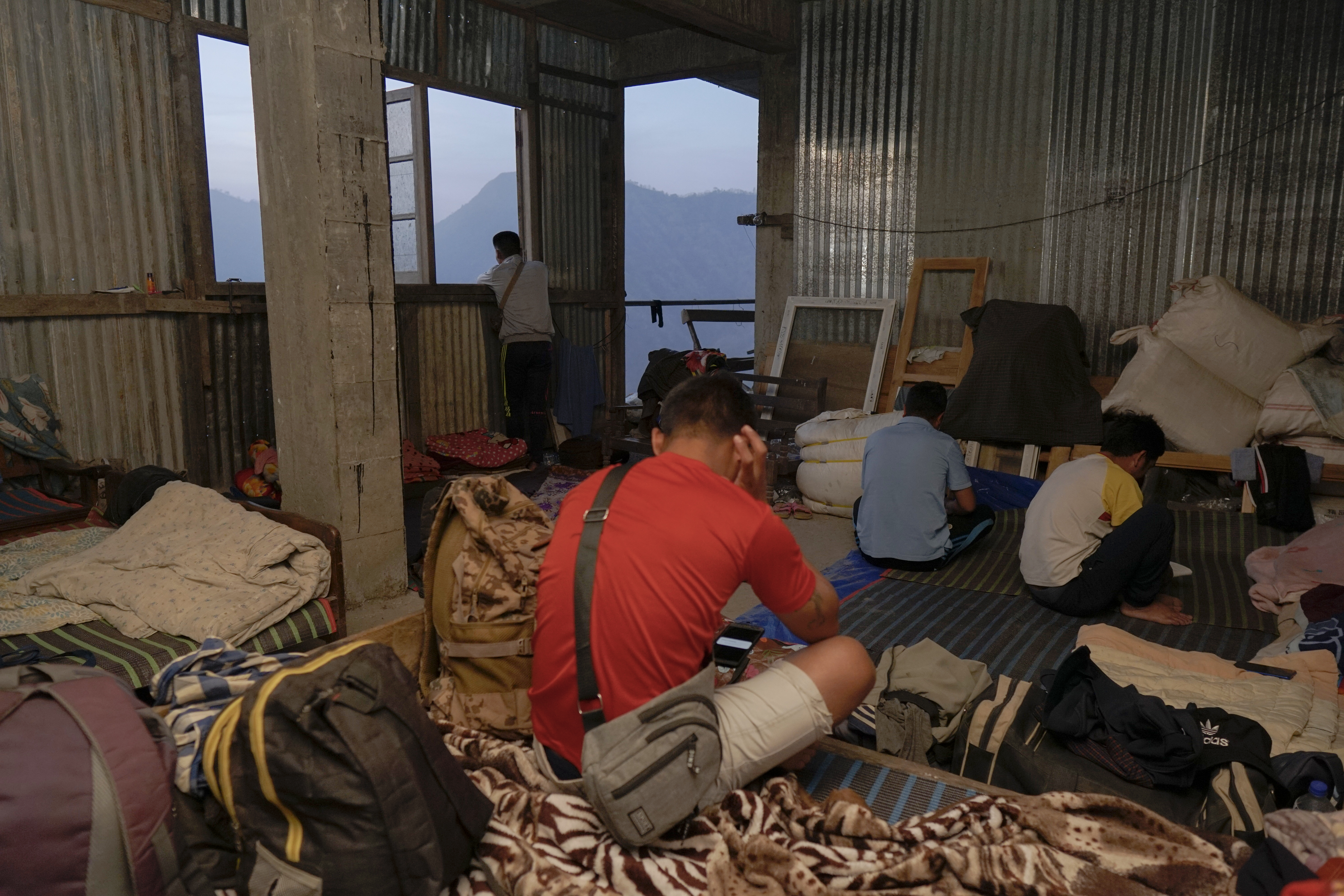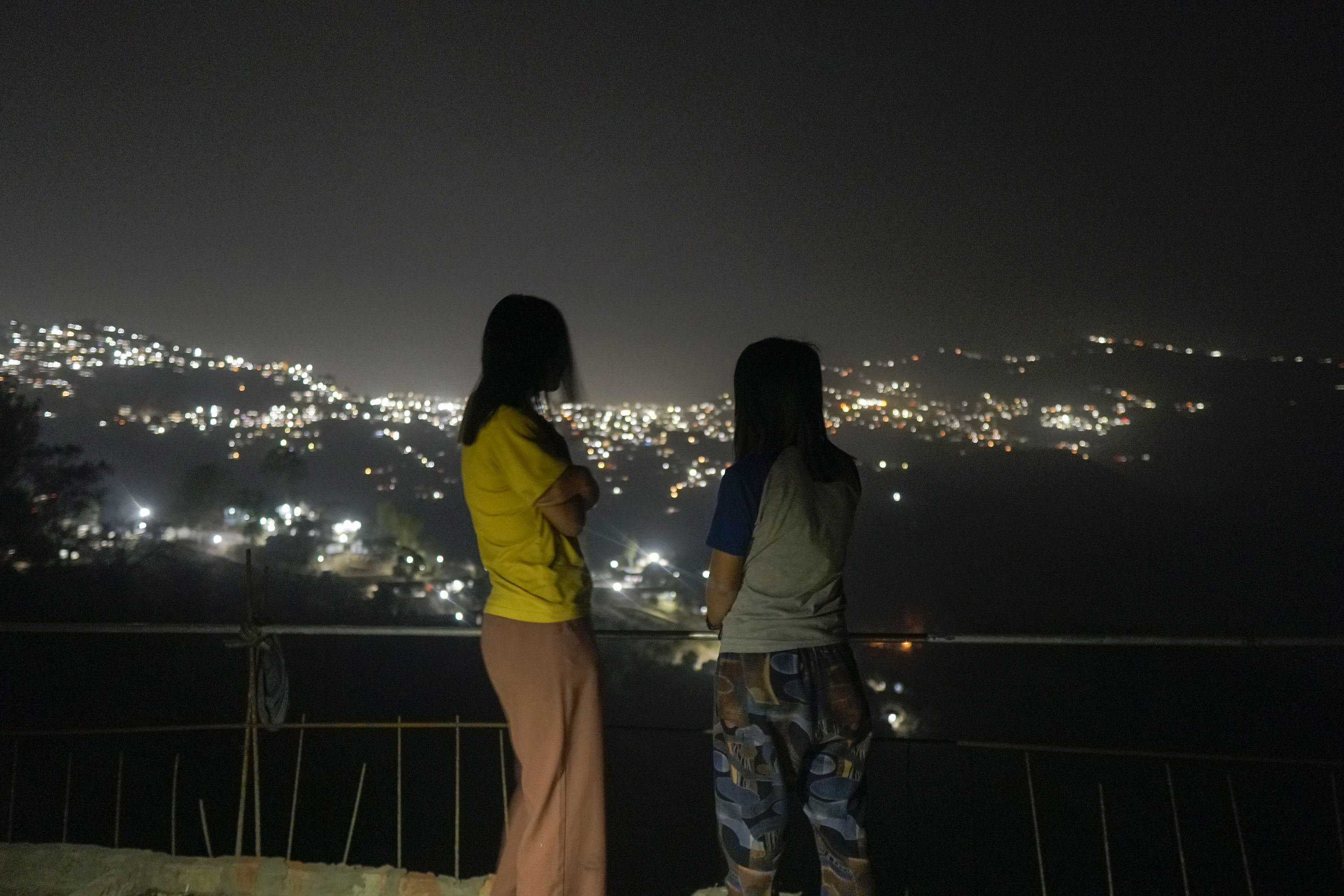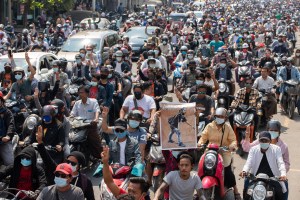Former Myanmar soldier Vanzomang* rummaged through the backpack that he carried while crossing the border into India on foot in the dead of night.
He pulled out notebooks containing instructions from his army training on how to plant landmines, a technique he wants to remember after joining in the resistance against the coup back home.
Videos by VICE
“I thought I would need them for the federal army,” he said, referring to an informal grouping of forces taking shape in and outside Myanmar in opposition to the Feb. 1 military takeover.
The 29-year-old, who wanted to be identified by a pseudonym as Myanmar military defectors can face the death penalty, made a solo journey through the Tiau river to enter the northeastern Indian border state of Mizoram last week.
He said he had “lost faith” with the armed forces and left after he got wind of security raids being carried out against the civilian population. As of Tuesday, more than 260 people have been killed in the crackdowns, and more than 2,000 arrested.
But his journey of disillusion began years ago, when he enlisted with the aim of serving a country that had only recently emerged from direct military rule in 2011. From the Chin minority, he quickly ran into racism and discrimination from his ethnic Burmese superiors in Sagaing region’s Kalay town, where he said he was stationed.

In one incident, he said higher-ranking officers mocked him when he asked for sick leave, then denied the request.
“My seniors did not grant me leave and insulted my wife, asking me if she was a prostitute,” Vanzomang said, adding that he was also subjected to derogatory slurs about his ethnicity like “Chinpo,” which loosely translates to “Chin shit.”
He is still getting used to the sights and sounds of Aizawl, a bustling but orderly hill station that is the capital of Mizoram. Although everyone speaks the same Mizo dialect as he does, the asphalted roads and heavy traffic remind him of how far away he is from home in rural Sagaing. He left his wife and two young kids, including a newborn son, on the assumption that they would be safer away from him.
Though there are numerous ethnic armed insurgent groups in Myanmar that have clashed with the military for years, there have been growing calls to oppose the junta with a ‘people’s army’ as impatience with the international community wears thin. Though the grouping may simply be a way of referring to overall resistance including strikes and demonstrations, the people’s army already has a coat of arms design.
Mizoram is emerging as a possible exile base for the movement, posing a diplomatic quandary for India. On Sunday, Mizoram Chief Minister Zoramthanga tweeted that he had a ‘fruitful’ online meeting with Zin Mar Aung, an ousted official serving as the Myanmar resistance’s Foreign Minister.

Civilians from Myanmar who fled to Mizoram suggested the ethnic armed groups that were a part of a Nationwide Ceasefire Agreement could band together.
Ye Htut*, an activist who joined Myanmar’s Civil Disobedience Movement (CDM), which aims to bring the economy to a standstill through widespread strikes, said that the coup can only be fixed internally. “Many people are counting on the UN but we have to take matters into our own hands,” he said.
“The military is getting weaker since most of the people are CDM supporters, many of whom are willing to join the federal army,” he added, calling the junta the “real terrorists.”
Many members of the security forces fled the country because they did not want to take part in an increasingly brutal crackdown, but it is unclear what they will do next.
“We had to arrest several women who were protesting on the streets,” said Lingmuankim*, a female police officer from Myanmar who escaped to Mizoram with a colleague, told VICE World News.
“If we hadn’t abandoned our posts, we would have to shoot them. The military doesn’t care even if we have to shoot our relatives.”
The 24-year-old was part of a group of 16 other police officers who ditched their posts in Chin state’s Tedim town. They are now refugees, living in a shabby building at an undisclosed location a few miles from the Mizoram state capital. But they may be safer in Mizoram because of its close ethnic ties to the Chin people.
Sangchin Chinzah, secretary in-charge of home affairs in Mizoram, said that it was difficult to estimate the exact number of refugees, but there were no plans to send them back. “They are like our brothers. I’m not sure if we can even call them refugees,” she said.
Former police officers in Mizoram told VICE World News that another military defector staying with them had left on a flight to New Delhi, where he plans to apply for refugee status.
But since India is not a signatory to the UN conventions governing the treatment of refugees, their status can be unpredictable.
“When we save up enough, we too want to leave for Delhi so that we can apply for asylum in the United States,” she added.
Leaving Myanmar, Vanzomang destroyed any documents associating him with the military, left his old smartphone behind, and bought a new one after arriving. The notebooks on landmines were the only part of his past that he chose to keep.
*Names were changed on request due to security concerns.
Follow VICE World News on Twitter.







